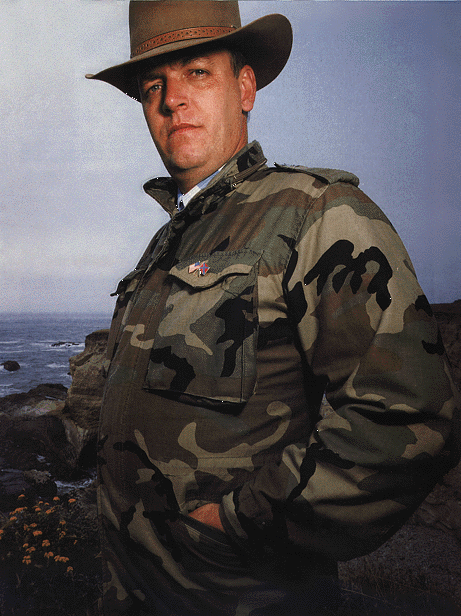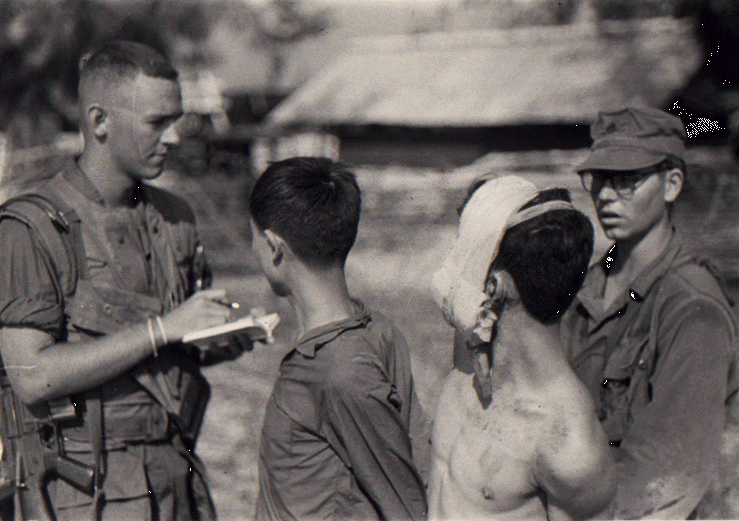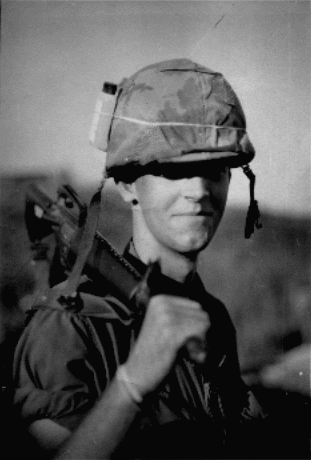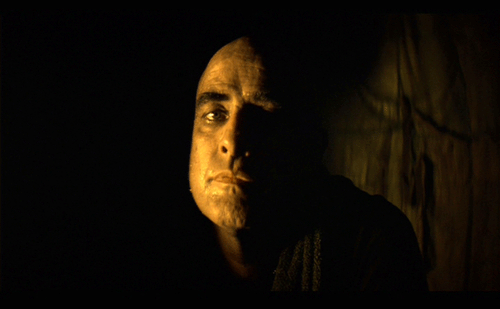
Here’s what Jimmy Breslin calls the best magazine story ever written:
“Brownsville Bum”
By W.C. Heinz
It’s a funny thing about people. People will hate a guy all his life for what he is, but the minute he dies for it they make him out a hero and they go around saying that maybe he wasn’t such a bad guy after all because he sure was will- ing to go the distance for whatever he believed or whatever he was.
That’s the way it was with Bummy Davis. The night Bummy fought Fritzie Zivic in the Garden and Zivic started giving him the business and Bummy hit Zivic low maybe 30 times and kicked the referee, they wanted to hang him for it. The night those four guys came into Dudy’s bar and tried the same thing, only with rods, Bummy went nuts again. He flattened the first one and then they shot him, and when everybody read about it, and how Bummy fought guns with only his left hook and died lying in the rain in front of the place, they all said he was really something and you sure had to give him credit at that.

“So you’re AI Davis?” one of the hoods said. “Why you punch-drunk bum.”
What did they expect Bummy to do? What did they expect him to do the night Zivic gave him the thumbs and the laces and walked around the referee and belted Bummy? Bummy could hook too good ever to learn how to hold himself in, if you want the truth of it.
That was really the trouble with Bummy. Bummy blew school too early, and he didn’t know enough words. A lot of guys who fought Zivic used to take it or maybe beef to the referee, but Bummy didn’t know how to do that. A lot of guys looking at four guns would have taken the talk and been think- ing about getting the number off the car when it pulled away, but all Bummy ever had was his hook.
Bummy came out of Brownsville. In the sports pages they are always refer- ring to Brownsville as the fistic incubator of Brooklyn, because they probably mean that a lot of fighters come out of there. Murder, Inc., came out of there, too, and if you don’t believe it ask Bill O’Dwyer. If it wasn’t for Brownsville maybe Bill O’Dwyer wouldn’t have become the mayor of New York.

The peculiar thing about Brownsville is that it doesn’t look so tough. There are trees around there and some vacant lots, and the houses don’t look as bad as they do over on Second Avenue or Ninth Avenue or up in Harlem. Don’t tell Charley Beecher, though, that you don’t think it’s so tough.
“What’s the matter you sold the place?” Froike said to Charley the other day. “It ain’t the same, now you sold it.”
Charley Beecher used to run the poolroom “With the gym behind it on the comer of Georgia and Livonia where Bummy used to train. It was a good little gym with a little dressing room and a shower, and Charley was a pretty good featherweight in the twenties, and his brother Willie, who was even a better fighter, fought Abe Attell and Johnny Dundee and Jack Britton and Leach Cross and Knockout Brown.
“For 17 years I was in business,” Charley said. “Seventeen times they stuck me up.”
He looked at Froike, and then he pointed with his two hands at his mouth and his ears and his eyes.
“I had guns here and here and here,” he said. “All I ever saw was guns.”
The worst part was that Charley knew all the guys. A week after they’d heist him they’d be back for a little contribution, maybe a C note. They’d be getting up bail for one of the boys, and they just wanted Charley to know there were no hard feelings about the heist, and that as long as he kept his dues up they’d still consider him friendly to the club. That’s how tough Brownsville was.
Bummy had two brothers, and they were a big help. They were a lot older than Bummy, and the one they called Little Gangy and the other they called Duff. Right now Gangy is doing 20 to 40, just to give you an idea, and Bummy took a lot of raps for them, too, because there were some people who couldn’t get back at Gangy and Duff so they took it out on the kid.
When Bummy was about seven his father used to run a candy and cigar store and did a little speaking on the side. In other words, he always had a bottle in the place, and he had Bummy hanging around in case anybody should say cop. When the signal would go up Bummy would run behind the counter and grab the bottle, and he was so small nobody could see him over the counter and he’d go out the back.
One day Bummy was going it down the street with the bottle under his coat and some real smart guy stuck out his foot. Bummy tripped and the bottle broke, and Bummy looked at the bottle and the whiskey running on the sidewalk and at the guy and his eyes got big and he started to scream. The guy just laughed and Bummy was lying right on the sidewalk in the whiskey and broken glass, hitting his head on the sidewalk and banging his fists down and screaming. A crowd came around and they watched Bummy, with the guy laughing at him, and they shook their heads and they said this youngest Davidoff kid must be crazy at that.
Davidoff was his straight name. Abraham Davidoff. In Yiddish they made Abraham into Ahvron and then Ahvron they sometimes make Bommy. All his family called him Bommy, so you can see they didn’t mean it as a knock. The one who changed it to Bummy was Johnny Attell.
Johnny Attell used to run the fights at the Ridgewood Grove, a fight club in Brooklyn where some good fighters like Sid Terris and Ruby Goldstein and Tony Canzoneri learned to fight, and Johnny and a nice guy named Lew Burston managed Bummy. When Bummy turned pro and Johnny made up the show card for the fight with Frankie Reese he put the name on it as Al (Bummy) Davis, and when Bummy saw it he went right up to John’s office.
“What are you doing that for?” he hollered at Johnny. “I don’t want to be called Bummy.”
“Take it easy,” Johnny said. “You want to make money fighting, don’t you?”
“People like to come to fights to see guys they think are tough.”
They sure liked to come to see Bummy all right. They sure liked to come to see him get his brains knocked out.
The first time Johnny Attell ever heard of Bummy was one day when Johnny was coming out of the Grove and Froike stopped him. Froike used to run the gym at Beecher’s and handle kids in the amateurs, and he was stand- ing there talking to Johnny under the Myrtle Avenue El.
“Also I got a real good ticket seller for you,” he said to Johnny after a while.
“I could use one,” Johnny said.
“Only I have to have a special for him,” Froike said. “No eliminations.” “What’s his name?” Johnny said.
“Giovanni Pasconi,” Froike said.
“Bring him around,” Johnny said.

The next week Johnny put the kid in with a tough colored boy named Johnny Williams. The kid got the hell punched out of him, but he sold $200 worth of tickets.
“He didn’t do too bad,” Johnny said to Froike after the fight. “I’ll put him back next week.”
“Only this time get him an easier opponent,” Froike said.
“You get him your own opponent,” Johnny said. “As long as he can sell that many tickets I don’t care who he fights.”
The next week Johnny put him back and he licked the guy. After the fight Johnny was walking out and he saw the kid and Froike with about 20 people around them, all of them talking Yiddish.
“Come here, Froike,” Johnny said.
“What’s the matter?” Froike said.
“What is this guy,” Johnny said, “a Wop or aJew?”
“He’s a Jew,” Froike said. “His right name’s Davidoff. He’s only 15, so we borrowed Pasconi’s card.”
“He can sure sell tickets,” Johnny said.
Bummy could sell anything. That’s the way Bummy learned to fight, selling. He used to sell off a pushcart on Blake Avenue. He used to sell berries in the spring and tomatoes and watermelons in the summer and apples in the fall and potatoes and onions and beans in the winter, and there are a lot of pushcarts on Blake Avenue and Bummy used to have a fight to hold his spot.
“I was the best tomato salesman in the world,” Bummy was bragging once.
It was right after he knocked out Bob Montgomery in the Garden. He stiffened him in 63 seconds and he was getting $15,000, and when the sports writers came into his dressing room all he wanted to talk about was how good he could sell tomatoes.
“You go over to Jersey and get them yourself,” he was telling the sports writers. “Then you don’t have to pay the middle guy. You don’t put them in boxes, because when you put them in boxes it looks like you’re getting ready to lam. When you only got a few around it looks like you can’t get rid of them so what you gotta do is pile them all up and holler: ‘I gotta get rid of these. I’m gonna give ’em away!”‘
The sports writers couldn’t get over that. There was a lot they couldn’t get over about Bummy.

When Johnny turned Bummy pro he wasn’t impressed by his fighting, only his following. Every time Bummy fought for Johnny in the Grove he’d bring a couple of hundred guys with him and they’d holler for Bummy. Everybody else would holler for the other guy, because now they knew Bummy was Jewish and the Grove is in a German section of Ridgewood, and this was when Hitler was starting to go good and there was even one of those German beer halls right in the place where the waiters walked around in those short leather pants and wearing fancy vests and funny hats.
The fight that started Bummy was the Friedkin fight. Bummy was just beginning to bang guys out at the Grove and Friedkin was already a hot fighter the Broadway Arena and they lived only blocks apart. Friedkin was a nice about three years older than Bummy, kind of a studious guy they called Schoolboy Friedkin, and there was nothing between him and Bummy except they were both coming up and the neighborhood made the match.
Like one day Bummy was standing in the candy store and a couple of guys told him Friedkin was saying he could stiffen Bummy in two heats. Then they went to Friedkin and said Bummy said Friedkin was afraid to fight. At first this didn’t take, but they kept it up and one day Bummy was standing with a dame on the corner of Blake and Alabama and Friedkin came along.
“So why don’t you two fight?” the dame said.
“Sure, I’ll fight,” Bummy said, spreading his feet.
“Right here?” Friedkin said. “Right now?”
“Sure,” Bummy said.
“I’ll fight whenever my manager makes the match/’ Friedkin said, and he walked away.
Bummy couldn’t understand that, because he liked to fight just to fight. He got right in the subway and went over to see Lew Burston in Lew’s office on Broadway.
“Never mind making that Friedkin match,” he said to Lew.
“Why not?” Lew said.
“Because when I leave here,” Bummy said, “I’m going right around to Friedkin’s house and I’m gonna wait for him to come out, and we’re gonna find out right away if I can lick him or he can lick me.”
“Are you crazy?” Lew said.
By the time Johnny Attell made the fight outdoors for Dexter Park there was really a fire under it. They had show cards advertising it on the pushcarts on Blake Avenue and Friedkin’s old man and Bummy’s old man got into an argument on the street, and everybody was talking about it and betting it big. Then it was rained out five nights and Johnny sold the fight to Mike Ja- cobs and Mike put it into Madison Square Garden.
When Bummy started working for the fight Lew Burston came over to Beecher’s to train him. When Bummy got into his ring clothes they chased everybody out of the gym, and Lew told Bummy to hit the big bag. Bummy walked up to the bag and spread his feet and pulled back his left to start his hook and Lew stopped him.
“Throw that hook away,” Lew said.
“Why?” Bummy said. “What’s wrong with it?”
“Nothing’s wrong with it,” Lew said, “only for this fight you’ll have to lose that hook.”
Before that Bummy was nothing but a hooker, but for weeks Lew kept him banging the big bag with rights. Then the night of the fight after Bummy was all taped and ready, Lew took him into the shower off the dressing room and he talked to Bummy.
“Now remember one thing,” he said to Bummy. “I can tell you exacdy how that other corner is thinking. They’ve got that other guy eating and sleeping with your hook for weeks. I want you to go out there and I don’t want you to throw one right hand until I tell you. If you throw one right before I say so I’ll walk right out on you. Do you understand?”
Bummy understood all right. He was like a kid with a new toy. He was a kid with a secret that only Bummy and Lew knew, and he went out there and did like Lew told him. Friedkin came out with his right glued along the side of his head, and for three rounds Bummy just hooked and hooked and Friedkin blocked, and a lot of people thought Friedkin was winning the fight.
“All right,” Lew said, after the third round. “Now this time go right out and feint with the left, but throw the right and put everything on it.”
“Don’t worry,” Bummy said.

Bummy walked out and they moved around for almost a minute and then Bummy feinted his hook. When he did Friedkin moved over and Bummy threw the right and Friedkin’s head went back and down he went with his legs in the air in his own corner. That was all the fighting there was that night.
Now Bummy was the biggest thing in Brownsville. AI Buck and Hype Igoe and Ed Van Every and Lester Bromberg were writing about him in the New York papers, saying he was the best hooker since Charley White and could also hit with his right, and he had dough for the first time in his life.
He got $14,000 for the Friedkin fight. When he walked down the street the kids followed him, and he bought them leather jackets and baseball gloves and sodas, just to show you what money meant and how he was already looking back at his own life.
When Bummy was a kid nobody bought him anything and he belonged to a gang called the Cowboys. They used to pull small jobs, and the cops could never find them until one night. One night the cops broke into the flat where the kids used to live with some dames, and they got them all except Bummy who was with his mother that night.
Sure, Bummy was what most people call tough, but if he felt sorry for you and figured you needed him be couldn’t do enough. That was the way Bummy met Barbara and fell in love.
Bummy was 19 then and one day he and Shorty were driving around and Shorty said he wanted to go to Kings County Hospital and visit a friend of his who was sick, and there was this girl about 16 years old. They sat around for a while and Shorty did all the talking and then the next time they went to see the girl Shorty was carrying some flowers and he gave them to her.
“From him,” Shorty said, meaning Bummy.
When the girl left the hospital Shorty and Bummy drove her home, and then every day for a couple of weeks they used to take her for a ride and to stop off for sodas. One day the three of them were riding together in the front seat and Bummy wasn’t saying anything.
“Say, Bobby,” Shorty said all of a sudden, “would you like to get married?”
The girl didn’t know what to say. She just looked at Shorty.
“Not to me,” Shorty said. “To him.”
That was the way Bummy got married. That was Bummy’s big romance. After the Friedkin fight Bummy won about three fights quick, and then they made him with Mickey Farber in the St. Nick’s. Farber was out of the East Side and had a good record, and one day when Bummy finished his training at Beecher’s he was sitting in the locker room soaking his left hand in a pail of ice and talking with Charley.
That was an interesting thing about Bummy’s left hand. He used to bang so hard with it that after every fight and after every day he boxed in the gym it used to swell up.
“I think I’ll quit fighting,” Bummy said to Charley.
“You think you’ll quit?” Charley said. “You’re just starting to make dough.”
“They’re making me out a tough guy,” Bummy said. “All the newspapers make me a tough guy and I don’t like it and I think I’ll quit.”
“Forget it,” Charley said.
When Charley walked out Murder, Inc., walked in. They were all there—Happy and Buggsy and Abie and Harry and the Dasher—and they were looking at Bummy soaking his hand in the ice.
“You hurt your hand?” Buggsy said.
“No,” Bummy said. “It’s all right.”
They walked out again, and they must have gone with a bundle on Farber because the day after Bummy licked Farber he was standing under the El in front of the gym and the mob drove up. They stopped the car right in front of him and they piled out.
“What are you, some wise guy?” Buggsy said.
“What’s wrong with you?” Bummy said.
“What’s all this you gave us about you had a bad hand?” Buggsy said.
“I didn’t say I had a bad hand,” Bummy said.
“You did,” Buggsy said.
“Listen,” Bummy said, spreading his feet the way he used to do it, “if you guys want a fight let’s start it.”
Buggsy looked at the others and they looked at him. They they all got in the car and drove off, and if you could have been there and seen that you would have gone for Bummy for it.
That was the bad part about Bummy’s rap. Not enough people knew that part of Bummy until it was too late. The people who go to fights don’t just go to see some guy win, but they go to see some guy get licked, too. All they knew about Bummy was some of the things they read, and he was the guy they always went to see get licked.
Even the mob that followed Bummy when he was a big name didn’t mean anything to him, because he could see through that. He could see they were always grabbing at him for what they could get, and that was the thing he never got over about the time he was training in Billy West’s place up in Woodstock, New York.
Bummy went up there after he came out of the Army,just to take off weight, and there are a lot of artists around there. Artists are different people, because they don’t care what anybody says about a guy and they either like him or they don’t like him for what they think he is. They all liked him up there, and Billy used to say that Bummy could have been Mayor of Woodstock.
Billy had a dog that Bummy never forgot, either. Bummy used to run on the roads in the mornings and Billy’s dog used to run with him. Every morning they’d go out together and one day another dog came out of a yard and went for Bummy and Billy’s dog turned and went after the other dog and chased it off.
“Gee, this dog really likes me,” Bummy said, when he got back to the house, and he said it like he couldn’t believe it. “He’s really my friend.”
The fight that really started everybody hating Bummy, though, was the Canzoneri fight in the Garden. It was a bad match and never should have been made, but they made it and all Bummy did was fight it.
Canzoneri was over the hill, but he had been the featherweight champion and the lightweight champion and he had fought the best of his time and they loved him. When Bummy knocked him out it was the only time Tony was knocked out in 180 fights, and so they booed Bummy for it and they waited for him to get licked.

They didn’t have to wait too long. After he knocked out Tippy Larkin in five they matched him with Lou Ambers. Just after he started training for Ambers he was in the candy store one day when an argument started between. Bummy and a guy named Mersky. Nobody is going to say who started the argument but somebody called Bummy a lousy fighter and it wasn’t Bummy. Somebody flipped a piece of hard candy in Bummy’s face, too, and that wasn’t Bummy either, and after Bummy got done bouncing Mersky up and down Mersky went to the hospital and had some pictures taken and called the cops.
The first Johnny Attell heard about it was the night after it happened. He was walking down Broadway and he met a dick he knew.
“That’s too bad about your fighter,” the cop said.
“What’s the matter with him?” Johnny said.
“What’s the matter with him?” the cop said. “There’s an eight-state alarm out for him. The newspapers are full of it. He damn near killed a guy in a candy store.”
The cops couldn’t find Bummy but Johnny found him. He dug up Gangy, and Gangy drove him around awhile to shake off any cops, and finally Gangy stopped the car in front of an old wooden house and they got out and went in and there was Bummy.
Bummy was sitting in a pair of pajama pants, and that was all he had on. There were four or five other guys there, and they were playing cards.
“Are you crazy?” Johnny said.
“Why?” Bummy said, playing his cards, but looking up.
“If the cops find you here they’ll kill you,” Johnny said. “You better come with me.”
After Johnny talked awhile Bummy got dressed and he went with Johnny. Johnny took him back to New York and got him a haircut and a shave and he called Mike Jacobs. Jacobs told Johnny to take Bummy down to Police Headquarters, and when Johnny did that Sol Strauss, Mike’s lawyer, showed up and he got an adjournment in night court for Bummy until after the Ambers fight.

The night Bummy fought Ambers there was Mersky right at ringside. He had on dark glasses and the photographers were all taking his picture and when Ambers beat the hell out of Bummy the crowd loved it.
The crowd, more than Ambers, hurt Bummy that night. He didn’t like the licking Ambers gave him, but the hardest part was listening to the crowd and the way they enjoyed it and the things they shouted at him when he came down out of the ring.
“I quit,” he said to Johnny in the dressing room. “You know what you can do with fighting?”
Johnny didn’t believe him. Johnny was making matches for Jacobs in the Garden then and he matched Bummy with Tony Marteliano, but Bummy wouldn’t train.
Only Johnny and Gangy knew this, and one day Johnny came out to Bummy’s house and talked with Bummy. When that didn’t do any good Lew Burston came out and he talked for four hours, and when he finished Bummy said the same thing.
“I don’t want to be a fighter,” Bummy said. “I like to fight. I’ll fight Marteliano on the street right now, just for fun, but when I’m a fighter everybody picks on me. I want them to leave me alone. All I wanted was a home for my family and I got that and now I just want to hang around my mob on the street.”
Johnny still didn’t believe it. They put out the show cards, advertising the fight, and one day Bummy saw one of the cards in the window of a bar and he phoned Johnny in Jacobs’ office.
“What are you advertising the fight for?” he said, and he was mad. “I told you I’m not gonna fight.”
Before Johnny could say anything Jacobs took the phone. Johnny hadn’t told him Bummy didn’t want to fight.
“How are you, kid?” Jacobs said. “This is Mike.”
“Listen, you toothless—,” Bummy said. “What are you advertising me for? I’m not gonna fight.”
He hung up. Mike put the phone back and turned around and when he did Bummy was suspended and Johnny was out of the Garden and back in the Ridgewood Grove.
When Bummy heard what had happened to Johnny he went over to the Grove to see him. All the time Johnny was in the Garden Bummy was a little suspicious of him, like he was a capitalist, but now he was different.
“I came over to tell you something,” he said to Johnny. “I’m gonna fight.”
“Forget it,” Johnny said. “You can’t fight.”
“Who says I can’t fight?” Bummy said.
“The New York Boxing Commission,” Johnny said. “You’re suspended.”
“Let’s fight out of town,” Bumrny said. “We’ll fight where I’m not suspended.”
Johnny did it better. He took Bummy back to Mike and Bummy apologized and Bummy fought Marteliano. For nine rounds they were even, and with ten seconds to go in the last round Bummy landed the hook. Marteliano went down and the referee counted nine and the bell rang and it was another big one for Bummy and he was going again.
It was Johnny’s idea to get Marteliano back, but Bummy saw Fritzie Zivic Henry Armstrong for the welterweight title and he wanted Zivic. If you the two guys you knew this was a bad match for Bummy, because he didn’t know how to fight like Zivic.
There were a lot of people, you see, who called Bununy a dirty fighter, but Zivic fight made them wrong. The Zivic fight proved that Bummy didn’t know how to do it.

When he came out of the first clinch Bummy’s eyes were red and he was rubbing them and the crowd started to boo Zivic. In the second clinch it was same thing, and at the end of the round Bummy was roaring.
“He’s trying to blind me,” he kept saying in the comer. “He’s trying to blind me.”
When it started again in the second round Bummy blew. He pushed Zivic off and he dropped his hands and that crazy look came on that wide face of his and they could hear him in the crowd.
“All right, yo—-,” he said, “if you want to fight dirty, okay.”
He walked right into Zivic and he started belting low. There was no trying to hide anything, and the crowd started to roar and before it was over people were on their chairs throwing things and the cops were in the ring and Bummy was fined $2,500 and suspended for life.
They meant it to be for life—which wouldn’t have been very long at that, when you figure Bummy lived to be all of 26—but it didn’t work out that way. About three weeks after the fight Bummy walked into Johnny’s office with Shorty and Mousie, and they sat around for a time and Johnny could see Bummy was lost.
“You know what you ought to do?” Johnny said. “You ought to join the Army for a while until this blows over.”
This was in December of 1940, before we got into the war. For a while Bummy sat there thinking, not saying anything.
“Could my buddies go with me?” he said.
“Sure,” Johnny said.
So Johnny called up the recruiting officer and Bummy and Shorty and Mousie showed up and there were photographers there and it was a big show. Everybody was for it, and Ed Van Every wrote a story in The Sun in which he said this was a great move because the Army would teach Bummy discipline and get him in good physical shape.
That was a laugh. The first thing the Army did was split Bummy and Shorty and Mousie up and send them to different camps.
They sent Bummy to Camp Hulen, Texas, and their idea of discipline was to have Bummy cleaning latrines with a toothbrush.
You got me into this,” Bummy used to write Johnny. “I’m going crazy, so before I slug one of these officers you better get me out.”
Johnny didn’t get him out, but he got Mike Jacobs to get Bummy a leave to fight Zivic in the Polo Grounds for Army Emergency Relief. Bummy used to fight best at about 147 pounds, and when he came back from Texas he weighed close to 200.
“You look sharp in that uniform, AI,” Zivic said to him when they signed for the bout.
“I’m glad you like it,” Bummy said. “You put me in it.”
You can imagine how Bummy was looking to get back at Zivic, but he couldn’t do it. He hadn’t fought for eight months, and Zivic was a real good fighter and he put lumps all over Bummy and in the tenth round the referee stopped it. They had to find Bummy to take him back to camp. They found him with his wife and they shipped him back, but then the Japs bombed Pearl Harbor and the Army decided it had enough trouble without Bummy and they turned him loose.
Bummy fought some of his best fights after that. He couldn’t get his license back in New York but he fought in places like Holyoke and Bridgeport and Washington and Philadelphia and Elizabeth, New Jersey, and Boston. He didn’t like it in those places, but he had to live, and so no matter where he fought he would always drive back to Brownsville after the fight and sometimes it would be four o’clock in the morning before he and Johnny would get in.
It’s something when you think about Bummy and Brownsville, when you think of the money he made, almost a quarter of a million dollars, and the things he had thrown at him and the elegant places he could have gone. It was like what Lew Burston said, though, when he said the Supreme was Bummy’s Opera, and the Supreme is a movie house on Livonia Avenue.
You have to remember, too, that Brownsville is only a subway ride from Broadway, but Bummy had never seen a real Broadway show until Chicky Bogad sent Bummy and Barbara to see Hellzapoppin the night before the second Farber fight.
“How long has this been going on?” Bummy said when they came out.
“How long has what been going on?” Chicky said.
“People like that on a stage,” Bummy said.
“People on a stage?” Chicky said. “For years and years. For long before they had movies.”
“Is that right? I’ll have to see more of that,” Bummy said, but he never did.

All of those fights Bummy had out of town were murders, too, because Bummy wasn’t hard to hit, but the people liked to see him get hit and when the Republicans got back in power in New York, Fritzie Zivic put in a word for Bummy, saying he guessed he had egged the kid on, and Bummy got his license back. That’s when they matched him with Montgomery.
“What you have to do in this one,” they kept telling Bummy, “is walk right out, throw your right, and miss with it. Montgomery will grab your right arm, and that will turn you around southpaw and then you hit him with the hook.”
They knew that was the only chance Bummy had, because if Montgomery got by the first round he figured to move around Bummy and cut him up. They drilled Bummy on it over and over, and they kept talking about it in the dressing room that night.
“Now what are you going to do?” Johnny Attell said to Bummy.
“I’m gonna walk right out and miss with my right,” Bummy said. “He’ll grab my arm and that’ll turn me around southpaw and I’ll throw my hook.”
“Okay,” Johnny said. “I guess you know it.”
Bummy sat down then on one of the benches. He had his gloves on and his robe over him and he was ready to go when there was a knock on the door.
“Don’t come out yet, Davis,” one of the commission guys said through the door. “They’re selling some War Bonds first.”
When Bummy heard that he looked up from where he was sitting and you could see he was sweating, and then he keeled right over on the floor on his face. Johnny and Freddie Brown rushed over and picked him up and they stretched him on the rubbing table and Freddie brought him to, and now they weren’t worried about whether Bummy would do what they told him. All they were worried about was whether they could get him in the ring.
They got him in the ring and Burston had him repeat what he was supposed to do. When the bell rang he walked right out and threw his right and missed around the head. Montgomery grabbed the arm and turned Bummy around, and when he did Bummy threw the hook and Montgomery went down. When he got up Bummy hit him again and that’s all there was to it.
Montgomery was 10 to 1 over Bummy that night and they couldn’t believe it. Bummy got $15,000 for that fight and he borrowed $1,500 from Jacobs and the next day when Mike paid him off he told Bummy to forget the grand and a half.
“Take it out,” Bummy said, throwing the dough on the desk. “You know damn well if he kayoed me like you thought he would you were gonna take it out.”
Bummy thought he’d never be broke again. He got $34,000 the night Beau Jack beat him and $15,000 when Armstrong stopped him. Then somebody sold him the idea of buying that bar and grill and somebody else sold him a couple of race horses and even after Dudy bought the bar and grill from him he was broke.
He should have been in training for Morris Reif the night he was shot. Johnny wanted him to fight Reif, just for the dough and to go as far as he could, but Bummy said that a lot of his friends would bet him and he didn’t think he could beat Reif, so instead he was sitting in the back of Dudy’s drinking beer and singing.
Bummy used to think he could sing like a Jewish cantor. He couldn’t sing, but he was trying that night, sitting with some other guys and a cop who was off duty, when he looked through that lattice work at the bar and he saw the four guys with the guns.
“What the hell is this?” he said.
He got up and walked out and you know what happened. When Bummy stiffened the first guy one of the others fired and the bullet went into Bummy’s neck. Then the three picked up the guy Bummy hit and they ran for the car. One of the guys with Bummy stuffed his handkerchief in the collar of Bummy’s shirt to stop the blood, and Bummy got up and ran for the car. When he did they opened up from the car, and Bummy went flat on his face in the mud.
When the car started to pull away the cop who had been in the back ran out and fired. He hit one guy in d1e spine, and that guy died in Texas, and he hit another in the shoulder. The guy with the slug in his shoulder walked around with it for weeks, afraid to go to a doctor, and then one night a cop in plain clothes heard a couple of guys talking in a bar.
“You know that jerk is still walking around with the bullet in his shoulder?” the one said. “What bullet?” the second one said.
“The Bummy Davis bullet,” the first said.
The cop followed them out, and when they split up he followed the first guy and got it out of him. Then the cops picked up the guy with the bullet and he sang. They picked up the other two in Kansas City and they’re doing 20 to life. They were just punks, and they called themselves the Cowboys, the same as Bununy’s old gang did.
It was a big funeral Bummy had. Johnny and Lew Burston paid for it. The papers had made Bummy a hero, and the newsreels took pictures outside the funeral parlor and at the cemetery. It looked like everybody in Brownsville was there.
This piece originally appeared in True. It is reprinted here with permission of Gayl Heinz.

More Heinz:
One Throw (Short Story)
The Happiest Hooligan of them All (Pepper Martin)
Death of a Racehorse
Speaking of Sports (Howard Cosell)
Maybe Tomorrow, Maybe the Next Day (Jeremy Vernon)
As a bonus, please check out out this terrific introduction to the Heinz collection What A Time It Was: The Best of W.C. Heinz on Sports.
By Jeff MacGregor
W. C. Heinz is the last surviving member of a golden generation of American writers. A newspaper reporter and columnist, a war correspondent and magazine feature writer, a novelist and short story writer, he was a friend and colleague of Damon Runyon, Grantland Rice, Red Smith, A. J. Liebling, Jimmy Cannon, Frank Graham, and Paul Gallico. At mid-century he was one of the best and most admired writers in America.
Across the arc of a sixty-year career his fiction has been praised by Ernest Hemingway and his combat reportage compared to that of Ernie Pyle. He wrote the book that made Vince Lombardi a sports icon, and co-wrote the classic novel MASH. He wrote about Dr. Martin Luther King Jr.’s Selma peace march and about the Allied march into Germany to end the Second World War. He wrote about success and failure, life and death, and all the dire business of humanity in the busiest half-century of mankind’s history. Mostly, though, Bill Heinz wrote about sports.
Wilfred Charles Heinz was born on January 11, 1915, in Mount Vernon, New York. The only child of Elizabeth and Frederick Heinz, he recalls ancient afternoons spent with his friends flipping baseball cards after school—winner takes Cobb, Ruth, or Johnson, Speaker or Frisch, a fortune’s worth now—the pasteboard cards tossed into the air and then gathered up for the breathless run home. Heinz, fine-boned and slender, played hockey all the way up through high school, so he understood athletics as a physical and competitive expression of self. But he was also an avid reader, devouring sets of Tennyson, Twain, Shakespeare, Balzac, and Poe, which introduced him to a world of ideas, and to self-expression of a different sort. For Christmas in 1932 he received the Omnibus of Sport, a sports writing anthology edited by the legendary Grantland Rice. In it, Heinz discovered the intersection of two things he loved: good writing and sports.

In 1937 Heinz graduated from Middlebury College in Vermont, where he had written and edited the sports page of the school newspaper. In that autumn of ’37, he took his first real job as a messenger boy for one of the afternoon papers down in the city, the New York Sun. He was paid fifteen dollars a week to run errands. Soon promoted to copyboy, by 1939 he was working as a cub reporter, covering school board meetings and apartment fires and learning how to write on deadline. He learned to listen to people, to what they said and how they said it and what they really meant. And most importantly, he learned how to tell a story.
For the next four years, Bill Heinz worked as a general assignment reporter at the Sun. He wrote about corrupt politicians and roller coaster trackwalkers, city bond issues and streetcorner shootings. He occasionally covered basketball or wrote a piece on the new winter sensation, parallel skiing, but he felt stuck and unfulfilled and wasn’t sure where or how far his writing could take him. The Second World War changed all that. He became the Sun‘s junior war correspondent in 1943, covering carrier operations in the Atlantic. His early dispatches were crisp and informative, optimistic, and heavy on the upbeat hometown profiles of Your Boys at Sea. By 1944, though, when Heinz started following the ground war across Europe after the Normandy invasion, his work took on a new gravity, the words tempered by the horrible reality of war seen firsthand. What Heinz saw on the push east to Berlin would inform his work from then on. He stripped away the artifice, did away with any writerly “style” until he made himself transparent. This would characterize the best of his work for the rest of his life.
It is this streamlined lyricism and meticulous devotion to detail that marked Heinz’s work after he returned from Europe in the spring of 1945. He was assigned a sports beat, and quickly became one of New York’s most highly regarded writers. (When asked, in 1946, to recommend a writer for an upcoming magazine job, Damon Runyon, unable to speak because of terminal throat cancer, wrote on a cocktail napkin, “W. C. Heinz very good.” He underlined “very good” three times.)
By 1948 Heinz had his own daily sports column in the New York Sun, fittingly positioned in a double truck layout opposite that of his mentor, Grantland Rice. He wrote magazine pieces and fine short stories as well, raising a family and building a national reputation. One of his columns from that year, “Death of a Racehorse,” which is included in this collection, remains, with all due respect to Bill’s good friend Red Smith, perhaps the best piece of daily newspaper writing you’ll ever read. It is a 700-word master class in how to write. It is observant and precise in detail, lyrical and beautifully metered in its language, and, in its final paragraph, piercingly eloquent about futility, about struggle and loss, and about death.

For over two years, five times a week, Heinz wrote his column in the best sports city in the world. New York was a mecca for everything from football and baseball to hockey and track, to harness racing to the dog show to the six-day bicycle races up at the 168th Street Armory. Heinz wrote about all of it exceptionally well. But what Heinz best loved to write about was boxing. It appealed to his storyteller’s sense with its simplicity, its finality, and its colorful—to say nothing of comic—characters; its sleek and shadowy money men with their pneumatic molls, its artful managers and dogged trainers and idiot savant cornermen, its avid fans and its second-generation fighters, young men bootstrapping themselves up from the gutter and into their split-level, wall-to-wall American dream and then back again.
At places like Stillman’s Gym on Eighth Avenue, Heinz spent his afternoons with his sleeves rolled up, his tie loosened, and his elbows propped on the damp canvas, taking notes, listening to the way the boxers and their handlers spoke, watching how they moved and what punches they threw. He was an extraordinary student of the form. He saw in boxing’s regulated savagery the purest expression of man’s endless appetite for combat, which he witnessed repeatedly during the war.
Boxing, to any writer but most especially to Bill Heinz, was a tailor-made meeting of the sacred and profane. It has always exerted an irresistible pull on writers of every generation from Jack London to Ernest Hemingway to Norman Mailer to Joyce Carol Oates. Looking back over the years since 1900, though, the simplest way to catalog the relative accomplishments of writers on the subject of boxing is this: There is W. C. Heinz. There is A. J. Liebling. There is everyone else.
The New York Sun closed its doors in January 1950, an early victim of the declining circulation that would reduce the number of daily papers in New York City from ten to three over the next two decades. By the time of its demise, Bill Heinz had already become a successful freelancer for magazines like Collier’s, Sport, the Saturday Evening Post, Argosy, True, Cosmopolitan, Esquire, and Look. Most of the pieces in this collection come from Bill’s magazine work.

Between 1950 and 1958 when his novel The Professional was published to wide critical acclaim (including an effusive congratulatory telegram from one of his most ardent admirers, Ernest Hemingway, and a fan letter from an earnest young author named Elmore Leonard), W. C. Heinz perfected his signature approach to the craft of storytelling. Like a master mason, Heinz built each of his long-form stories as though he were building a wall of mortarless stone. Every word and phrase was carefully set on the words and phrases that went before them. At his best, he was the equal of a Joseph Mitchell or an E. B. White. What can top the two paragraphs which open “Brownsville Bum”?
Heinz had an ear for dialogue, for the truth of what people said and how to write it. He was a student of the great Frank Graham, another sports columnist who had helped perfect the so-called “conversation piece,” stories built around long blocks of dialogue unbroken by writerly asides or commentary. In the days before the tape recorder (and guarded, litigious athletes), it was still possible to report the spirit, if not the letter, of what your subjects said—especially if you made them sound better, or smarter, or more colorful. In this technique, Heinz was, and remains, unmatched.
Through that decade and into the next, Bill Heinz profiled, it seems, every star athlete in America. Stan Musial and Pete Reiser and Eddie Arcaro and Charlie Conerly and Joe Namath. Boxers from Joe Louis to Carmen Basilio to Floyd Patterson, Sugar Ray Robinson and Ingemar Johannson to Ezzard Charles and the original Rockys, Marciano and Graziano. In every case what characterizes the writing of Bill Heinz is its drive and its deceptive simplicity. Never strident or overwrought, never hagiographic or adulatory, Bill Heinz wrote sports with a gimlet eye.

He also wrote with the same sure voice about the practice of medicine in his novels The Surgeon, Emergency, and MASH, a book he wrote in partnership with Dr. Richard Hornberger under the pseudonym Richard Hooker. This last title offers a rare glimpse into the sly sense of humor for which Heinz is still best known among his friends. And though these books, along with The Professional, American Mirror, and Once They Heard the Cheers were well-wrought and successful, perhaps Heinz’s greatest triumph was Run to Daylight! his week-in-the-life collaboration with the legendary Vince Lombardi. It made Lombardi a household name. Other members of the press eventually chose to make him a household god.
Even Bill Heinz, who should be a role model for gifted young writers everywhere, has suffered at the inconstant hands of history. Most of the publications for which he did his best work have long since ceased to be. Collier’s, Argosy, Look, True, the Sun, and the Saturday Evening Post have all been lost to us. Heinz never had the stable, high-visibility, long-term platform his friend Red Smith did. He is, at least in part, responsible for the careers of New Journalists like Gay Talese and Tom Wolfe and Frank Deford. Pioneering a new voice and a new approach, he created new opportunities for every writer to follow. And with this collection of his best writing on sports, he will no longer be the best kept secret in American literature.





















































































